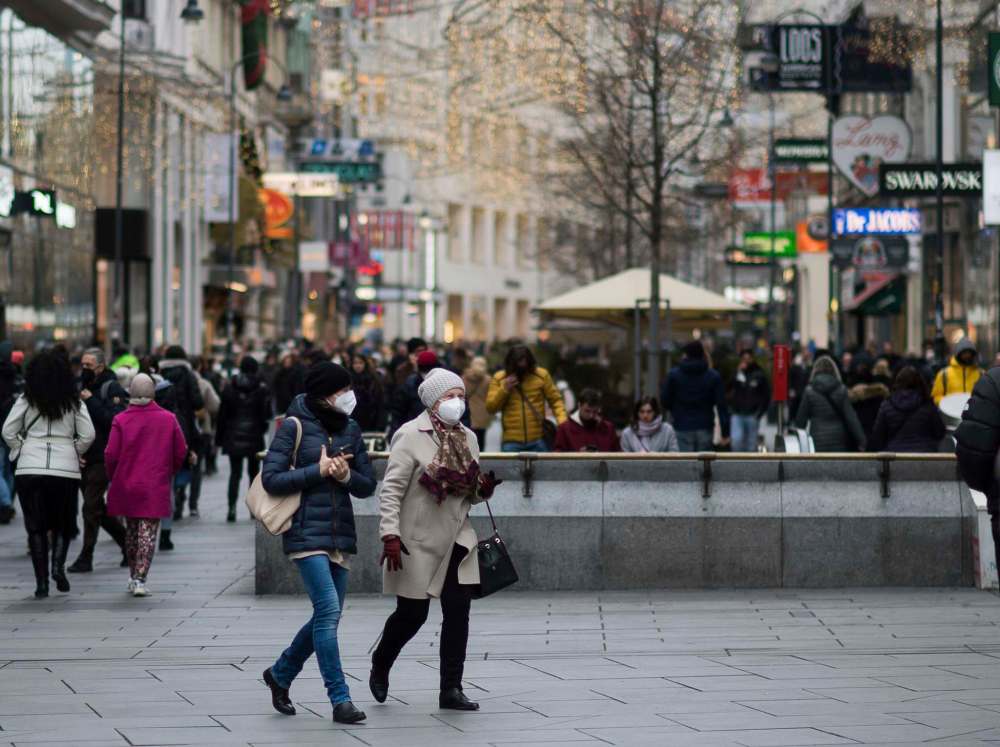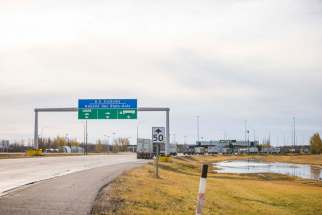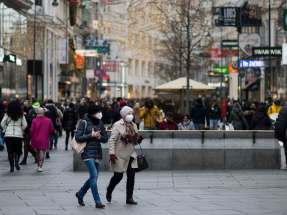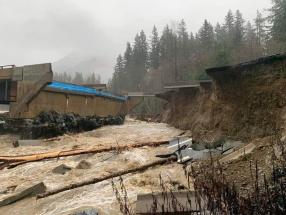Trying times calling for extraordinary measures
Read this article for free:
or
Already have an account? Log in here »
To continue reading, please subscribe:
Monthly Digital Subscription
$0 for the first 4 weeks*
- Enjoy unlimited reading on winnipegfreepress.com
- Read the E-Edition, our digital replica newspaper
- Access News Break, our award-winning app
- Play interactive puzzles
*No charge for 4 weeks then price increases to the regular rate of $19.00 plus GST every four weeks. Offer available to new and qualified returning subscribers only. Cancel any time.
Monthly Digital Subscription
$4.75/week*
- Enjoy unlimited reading on winnipegfreepress.com
- Read the E-Edition, our digital replica newspaper
- Access News Break, our award-winning app
- Play interactive puzzles
*Billed as $19 plus GST every four weeks. Cancel any time.
To continue reading, please subscribe:
Add Free Press access to your Brandon Sun subscription for only an additional
$1 for the first 4 weeks*
*Your next subscription payment will increase by $1.00 and you will be charged $16.99 plus GST for four weeks. After four weeks, your payment will increase to $23.99 plus GST every four weeks.
Read unlimited articles for free today:
or
Already have an account? Log in here »
Hey there, time traveller!
This article was published 17/11/2021 (1481 days ago), so information in it may no longer be current.
Talk about tough love.
This week, Austria — which has one of the lowest COVID-19 vaccine uptake rates in Europe — decided to put its two million unvaccinated citizens under house arrest.
For the time being, anyone who has resisted COVID-19 vaccinations are only allowed out of their homes to work or to buy groceries. Austrian police will be patrolling, demanding proof of vaccination from anyone found outside.
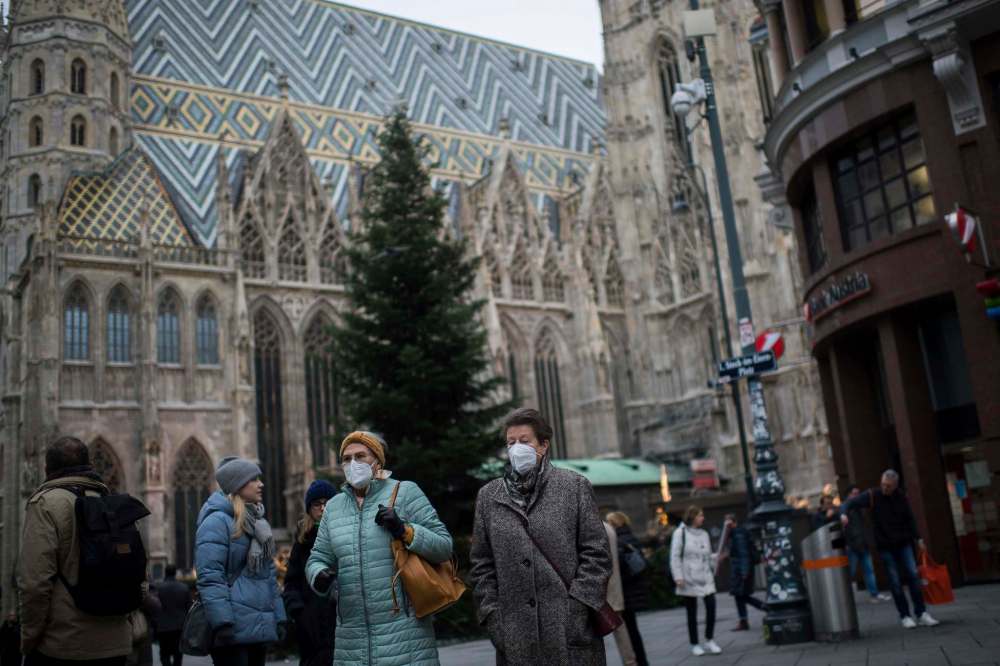
At this point, it’s unclear whether the strategy will work. Although many countries have locked down specific regions to control an outbreak, Austria may be the first to attempt a nationwide lockdown of the unvaccinated.
Practical problems abound; it seems pretty clear there won’t be enough police to identify and contain two million vaccine-resistant Austrians.
However, as extreme as the move is, it does recognize two fundamental realities: first, we will never escape the pandemic by asking for more co-operation from a constituency who have made it quite clear they’re not open to co-operation; second, modest measures are never going to free us from what is threatening to become a state of perpetual pandemic.
In Austria, and countries such as Germany and the Netherlands, government officials are debating more direct and extreme measures to control the fifth wave of COVID-19.
It should be noted in some of these regions, the “more extreme” measures translate into most of what is already being done in Manitoba: stopping unvaccinated people from eating in restaurants, attending sports and cultural events, and accessing air travel.
However, if you’re living in a country where many of those things are already being done (like Canada) and the unvaccinated still pose a threat, leaders need to start considering other extraordinary actions to control the spread of COVID-19, because the current incremental approach is failing.
If extraordinary new measures were to be implemented in Manitoba, they would likely focus on the Southern Health region, which captures dozens of mostly rural municipalities from the southwest shores of Lake Manitoba, south to the U.S. border and east to the Ontario border.
While almost all of the rural communities within this region have lower vaccination rates than urban centres, not all of them have been completely non-compliant.
While almost all of the rural communities within this region have lower vaccination rates than urban centres, not all of them have been completely non-compliant.
Communities such as Spruce Woods, Carman, Grey, Cartier/SFX, rural Portage are near or comfortably over 70 per cent fully vaxxed. Not high enough to fend off the perpetual pandemic, but better than a few months ago.
However, communities such as North Norfolk, Roland and Hanover are closer to 50 per cent. Then, there is the RM of Stanley, where only slightly more than a quarter of residents are fully vaccinated and all social and economic restrictions have had very little impact.
Faced with this resistance, Manitoba public health officials have continued to embrace a strategy used in past waves of COVID-19 to disastrous results: incremental increases in social and economic restrictions as case counts and test positivity rates rise, leading to greater stress on the health-care system and, ultimately, more deaths.
Past failures have made no impression on Manitoba’s pandemic response. Last week, new “restrictions” were enacted in Southern Health, including limits on gatherings for faith-based services.
Two problems: first, it only takes two people — one of them infected with the novel coronavirus — to spark an outbreak; second, how compliant will people be in communities where three out of every four have refused the vaccine?

Those obvious flaws in logic have not convinced Dr. Brent Roussin, Manitoba’s chief provincial public heath officer, to try something new. In a news conference Wednesday, he claimed the current modest measures should be effective as long as, “We can get buy in for what we’re doing right now.”
With the greatest of respect — far too many people in southern Manitoba are not buying in and they’re not likely to start buying in anytime soon.
Going back to the Austrian example, it seems quite likely at some point the province will have to consider locking down regions of the province where vaccine resistance is persistent. To avoid the impractical aspects of the Austrian strategy, that may mean putting fully vaccinated people into lockdown even though they’ve done everything they personally could do to help fight COVID-19.
This is not the creation of a COVID-19 leper’s colony. It is, however, a recognition neither carrots nor sticks are going to change the minds of the hardcore vaccine resistant.
This is not the creation of a COVID-19 leper’s colony. It is, however, a recognition neither carrots nor sticks are going to change the minds of the hardcore vaccine resistant.
Manitobans may shiver at the thought of checkpoints on provincial trunk highways in and out of the region. But we should remember we’ve already used that approach on provincial borders when travel out of and into Manitoba was severely restricted.
It all seems too extreme and extraordinary until you remember without some sort of extraordinary measures, the gross majority who have been vaccinated will continue to be held hostage by the minority refusing the vaccine.
While that situation persists, all options — even the extraordinary ones — need to be on the table.
dan.lett@freepress.mb.ca

Born and raised in and around Toronto, Dan Lett came to Winnipeg in 1986, less than a year out of journalism school with a lifelong dream to be a newspaper reporter.
Our newsroom depends on a growing audience of readers to power our journalism. If you are not a paid reader, please consider becoming a subscriber.
Our newsroom depends on its audience of readers to power our journalism. Thank you for your support.

